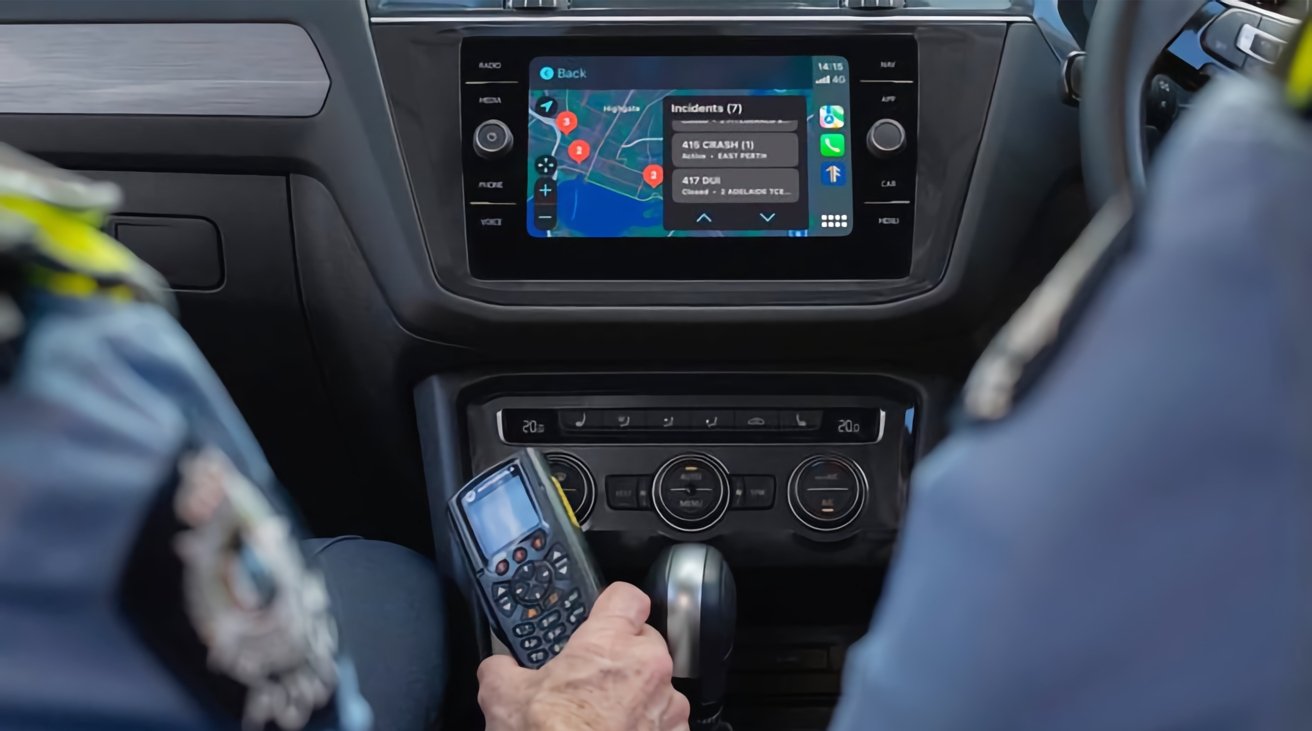CarPlay helps Australian police scan license plates automatically
Police in Australia are expanding their usage of CarPlay on the roads, with the in-car infotainment software now used to display information based on surrounding drivers' license plates.

Australian police using CarPlay - Image Credit: Motorola Solutions
CarPlay is commonly used by drivers to display app information on a car's built-in display, enabling them to manage music or see Apple Maps, for example. In Australia, the Police have been taking the concept further, using it for policing matters for a number of years.
In a new development, the Western Australia Police Force has seen an update to its PSCore mobile app to help with automatic number plate recognition (ANPR). Police vehicles in the country are commonly fitted with such systems, which display details about a nearby vehicle on a display, informing police officers of its history and ownership.
As part of an update, Motorola Solutions' PSCore app, which is used to handle a variety of police information tasks, will now display data from the ANPR system on the police vehicle's infotainment display, using CarPlay. This provides police with the same functionality as before, but without requiring the installation of brackets and displays that take up space.
"Real-time ANPR data helps to ensure that front-line officers are more aware of potential risks and able to make better decisions," said Superintendent Dean Snashall, Technology Portfolio, WA Police Force. The app "helps our officers to document incidents faster and more accurately, freeing more of their time to protect our communities."
So far, the CarPlay ANPR support has been rolled out to more than 80 vehicles in the force's fleet.
App-based policing
The Western Australian Police Force are well versed in the use of the PSCore app with CarPlay, and has done so for a few years already.
Back in April 2022, Motorola Solutions introduced OneForce Core, based on the PSCore app, which interfaced with CarPlay. While officers would typically use an iPhone or iPad for details of a callout or incident, OneForce Core would streamline the data to the essential points, displaying them in the vehicle using CarPlay.
Officers could also interact with the app using CarPlay, by touching the screen or making verbal commands.
PSCore has been installed on more than 6,000 mobile devices used by the WA Police Force, with it used to share critical information between officers via one interface.
In 2024, it was enhanced with more capabilities to respond to more incidents, including family violence reports. This includes automations to publish family violence reports to the Department of Communities in real time, speeding up referrals to support agencies while police are still in attendance at the scene.
Read on AppleInsider

Comments
So big brother is watching every where.
I know, boo hoo hoo on privacy, but public road space should be treated like airspace and access to it more tightly controlled. In today's highly connected environment the notion of privacy is largely an illusion. With improvements in AI and improvements in vision, voice, devices pinging connection points that have geo metadata, and other forms of surveillance, detection, and tracking systems including toll tag readers, the ability to move around the country anonymously is declining very rapidly. Hey, it's not like I'm advocating for a universal system to remotely disable vehicles, but that is probably not a bad idea now that I think about it.
This probably requires a bit more thought ...
as for the state vs federal. The state is the entity, the federal government is just an overarching entity with theoretically limited power over the states. Power devolved closer to the people. Nothing wrong with competitive federalism.
in summary, be very careful what you wish for.